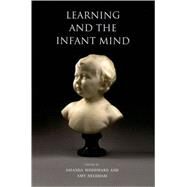- ISBN: 9780195301151 | 0195301153
- Cover: Hardcover
- Copyright: 9/8/2008
"When asking how cognition comes to take its mature form, learning seems to be an obvious factor to consider. However, until quite recently, there has been very little contact between investigations of how infants learn and what infants know. For example, on the one hand, research efforts focused on infants' foundational conceptual knowledge - what they know about the physical permanence of objects, causal relations, and human intentions - often do not consider how learning may contribute to the structure of this knowledge. On the other hand, research efforts focused on infants' perceptual and motor learning - how they extract information from the environment, tune their behavior patterns according to this information, and generalize learning to new situations - often do not consider the potential impacts of these perceptual and learning mechanisms on the structure of conceptual knowledge." "Although each of these research efforts has made significant progress, this research has done little to narrow the divide between the disparate traditions of learning and knowledge. The chapters in this book document, for the first time, the insights that emerge when researchers who come from diverse domains and use different approaches make a genuine attempt to bridge this divide. The authors consider both infants' knowledge across domains, including knowledge of objects, physical relations between objects, categories, people, and language, and learning broadly construed, bringing to bear direct laboratory manipulations of learning and more general considerations of the relations between experience and knowledge."--BOOK JACKET.







